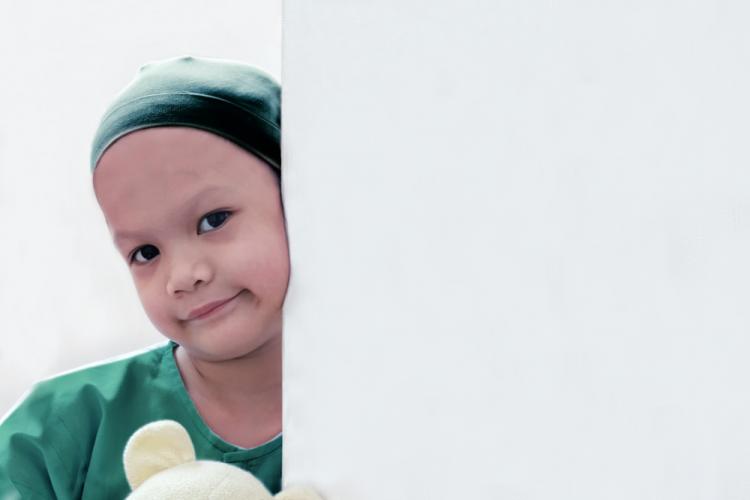From co-design to connecting the dots, paediatric cancer needs to be integrated along the healthcare continuum

Brain tumours are the second most common form of childhood cancer. During our last Stakeholder Forum we asked five experts about the research gaps that they think urgently need to be filled and the challenges that have not yet been addressed in paediatric brain cancer. Below are their responses. (Read about the event agenda and watch recordings here.)
The IMI Stakeholder Forum 2020 took place online on Tuesday 10 November. The theme was 'Broader horizons: growing Europe’s health partnership'. The panel on paediatric cancer featured Ruth Lydia Ladenstein, Professor of Paediatrics and Head of the Clinical Trials Unit S²IRP – CCRI, St. Anna Children’s Hospital, Gilles Vassal, Professor of Oncology, University Paris XI, Gustave Roussy Comprehensive Cancer Center, Annette Bakker, President, Children's Tumor Foundation, Salah-Dine Chibout, Global Head of Discovery and Investigational Safety, Novartis, and Pablo Guijarro Masi, Reimbursement & Health Economics Manager Brain Modulation, Medtronic.
Ruth Lydia Ladenstein - Cure more and cure better
According to Dr Ladenstein, the challenges are multiple since we are speaking of unique types of rare cancers with specific biological and clinical features, as children are not just small adults.
- A boost of transformational change may be fostered by public-private partnerships through the co-design and co-creation of a unique European Digital Centre. Family- and patient-centricity and equity across Europe are paramount concepts linked to this, and would require a real integration of European healthcare and research data.
- More minimally invasive diagnostic tools with a broadened spectrum are needed since enhanced innovations across the spectrum of therapeutic modalities will enable a better quality of cure.
- Psychosocial needs and survivors' long-term care equally need to be specifically addressed to satisfy the complex needs of children and young people with cancer.
Gilles Vassal - Now is the time to accelerate innovation for children and adolescents with cancer
According to Dr Vassal, industry, academia, regulators, parents working together is the only way forward to accelerate innovation for children and adolescents with cancer, and public-private partnerships are a good instrument to push forward the needed innovations. He says we need
- long-term follow-up of paediatric oncology patients. We need to connect the work done by pharma in response to regulatory requirements with initiatives taking place in academia and the patient community, such as survivorship passports
- to facilitate science-driven repurposing of drugs
- to introduce very early the connection between the new innovative compounds that will cure more children and Health Technology Assessments (HTAs) to anticipate how to get patient access to these expensive innovations. HTAs are still looking at new oncology drugs in a comparative way, but we cannot do this in paediatric cancer.
Watch the full panel discussion below. Please note that technical difficulties led to poor sound quality for the first few moments of this recording. The quality improves beginning minute 2:20.
Annette Bakker - Redesigning the patient journey
According to Ms. Baker, the main challenges for patients and families facing paediatric cancer are:
- How can we shorten the path to diagnosis and treatment?
- How can we improve the predictability and the quality of the patient journey?
- How can we increase the certainty of access to quality care?
We can give patients and their families siloed answers for each step on their journey - prevention, diagnosis, progression, treatment, long-term follow-up - but we would need integrated answers given by a fully-integrated healthcare system.
Salah-Dine Chibout - "Let's take the patient and carer perspective as a starting point"
Mr. Chibout asked: what can we all bring together to address the following challenges?
- Shortening the path to diagnosis and treatment
- Bringing more predictability about disease progression
- Getting the best combination of treatments/interventions in a timely manner to change the treatment journey
The answer is in the integration of technologies, knowledge, products, data/standardisation of our platforms and analysis and visualisation of data in real time - between public and private and various industry/technology sectors.
Pablo Guijarro Masi - Paediatric cancer integrated care solutions along the healthcare continuum
It is also very important to focus on the families of paediatric patients. The parents of children with cancer play a central role in the treatment and care process, but the burden of this process is huge – for example, lodging concerns during inpatient treatment - and has a major impact on these families.
